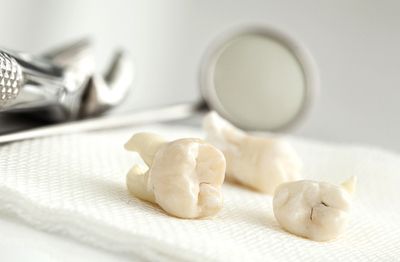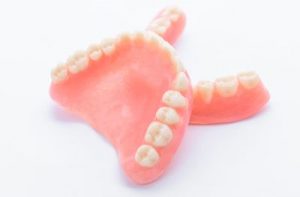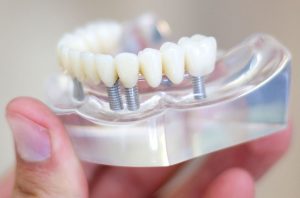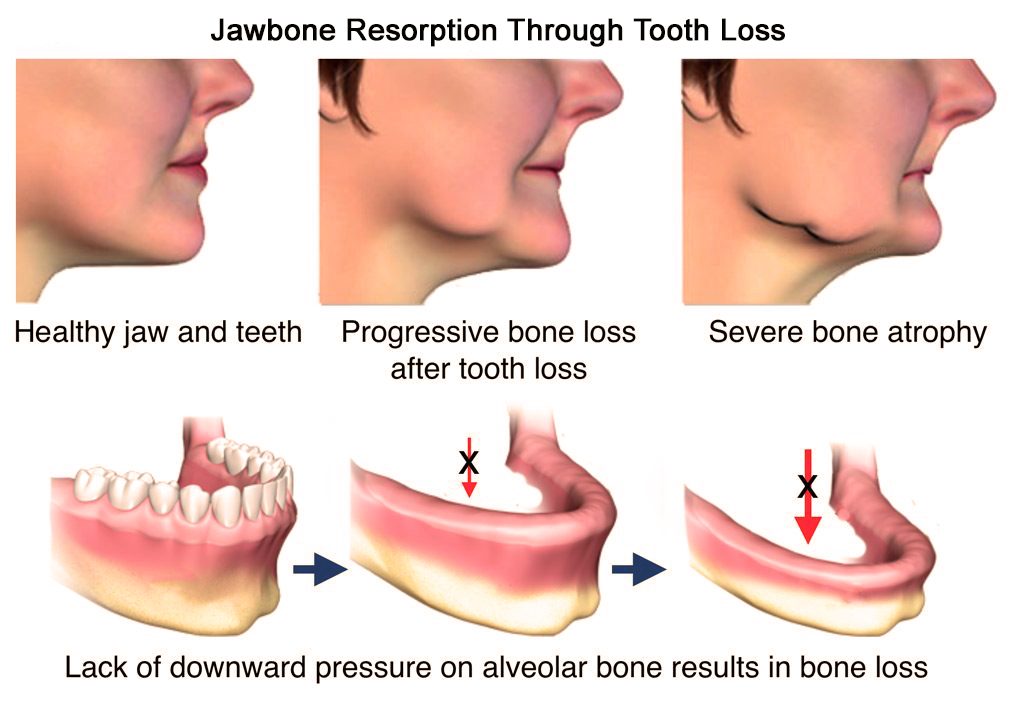
A major benefit of dental implants is their ability to help prevent bone resorption.
If you’ve lost several or all your teeth, and are thinking about tooth or dental implants, you may have heard of the term ‘bone resorption’ or ‘bone loss’. This is because bone resorption most commonly occurs when teeth are not replaced with implants.
Most of us don’t realise that our natural teeth do more than just help us function and keep our faces looking more ‘normal’ or balanced. With our natural teeth, every time we bite or chew, the pressure applied to our tooth roots stimulate the alveolar bone – the part of the jawbone that anchors the teeth in the mouth – keeping its strength and thickness. This bone mass helps support our natural teeth and maintain the shape of our face.
Without ongoing bone stimulation, the bone slowly starts to resorb (or reabsorb) into the body.
Technically speaking, resorption means that the body begins to reabsorb the minerals that make up your bone cells. These minerals, which include calcium, slowly re-enter the bloodstream where they are then used in other parts of the body where required. This bone resorption process is also known as jawbone atrophy.
Even just one year after extracting a tooth, approximately 25% of your bone is lost – and continues to resorb as time marches on.
Conventional dentures & their limitations
 Before the days of implants, partial or full removable dentures would be given to those with missing teeth. Dentures help give the appearance of a more natural smile and help, marginally, with biting and chewing, removable dentures sit on the gum line and don’t help to maintain bone volume.
Before the days of implants, partial or full removable dentures would be given to those with missing teeth. Dentures help give the appearance of a more natural smile and help, marginally, with biting and chewing, removable dentures sit on the gum line and don’t help to maintain bone volume.
Additionally, as the bone resorbs, the denture will no longer fit as closely on the gum line, causing sore spots, pain and irritation. This is why you need to have a dental professional reline (adjust) conventional dentures regularly.
 These problems with conventional dentures illustrate why dental implants have become so popular. Tooth implants help preserve bone tissue by acting as replacement tooth roots, stimulating the bone. In fact, dental implants are the only tooth replacement option that prevents bone resorption.
These problems with conventional dentures illustrate why dental implants have become so popular. Tooth implants help preserve bone tissue by acting as replacement tooth roots, stimulating the bone. In fact, dental implants are the only tooth replacement option that prevents bone resorption.
Additional causes of bone loss
Losing your natural teeth is not the only cause of bone loss. There are other contributing factors or causes, such as misaligned teeth – poorly aligned teeth can prevent normal chewing action, minimising bone stimulation, infection or periodontal disease can damage bone, and facial tumours can sometimes negatively impact the jawbone tissue.
Loss of bone density is less of a problem than losing bone volume, but it’s still something to be aware of. Factors such as hormonal changes, lifestyle, diet, disease, and even tooth loss can contribute to a lack of bone density.
Aesthetic outcome of bone loss
If your jawbone has shrunk or resorbed over many years, you may have discovered that your face has aged prematurely. This changes are numerous.
As both top and bottom jawbones lose depth, it will appear that your chin is closer to your nose, making the nose appear more prominent, your jaw appears to protrude, and the entire lower third of your face will look a little like it has fallen in. Extra lines and wrinkles develop around your mouth and jawline, your cheeks develop ‘jowls’ and facial skin sags. Consequently, you may look far older than your years.
Get in Touch!
If you’ve been living without your natural teeth for some time and are concerned you may have suffered bone loss, make an appointment with our dentist today to see the options available to you.

